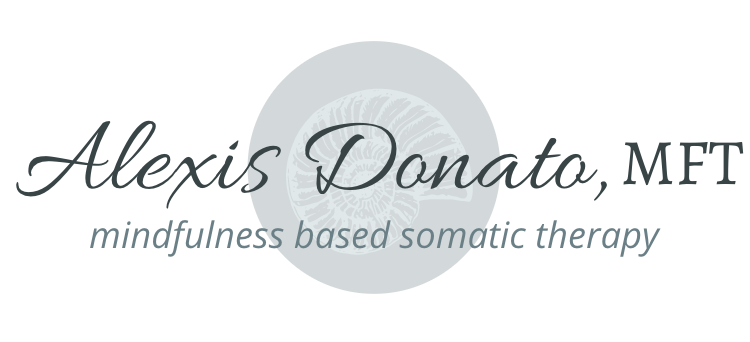Mindfulness
What is "mindfulness"?
mind·ful·ness
/ˈmīn(d)f(ə)lnəs/
noun
- the quality or state of being conscious or aware of something.
- "their mindfulness of the wider cinematic tradition"
2. a mental state achieved by focusing one's awareness on the present moment, while calmly acknowledging and accepting one's feelings, thoughts, and bodily sensations, used as a therapeutic technique.
Mindfulness is quite a buzz word these days....
From corporations to schools, more and more people are experiencing the benefits of simply paying attention to the present moment on purpose...welcoming our present moment experience with kindness.
Why practice mindfulness?
According to The Greater Good Science Center mindfulness means;
"Maintaining a moment-by-moment awareness of our thoughts, feelings, bodily sensations and surrounding environment."
Mindfulness also involves non-judgmental acceptance, meaning that we pay attention to our thoughts and feelings without judging them--without believing, for instance, that there's a "right" or "wrong" way to think or feel in any given moment. When we practice mindfulness, our thoughts tune into what we're sensing in the present moment rather than rehashing the past or imagining the future.
Though it has its roots in Buddhist meditation, a secular practice of mindfulness has entered the American mainstream in recent years, in part through the work of Jon Kabat-Zinn and his Mindfulness-Based Stress Reduction (MBSR) program, which he launched at the University of Massachusetts Medical School in 1979. Since that time, thousands of studies have documented the physical and mental health benefits of mindfulness in general and MBSR in particular, inspiring countless programs to adapt the MBSR model for schools, prisons, hospitals, veterans centers and beyond.
Studies have shown that practicing mindfulness, even for just a few weeks, can bring a variety of physical, psychological, and social benefits. Here are some of these benefits, which extend across many settings:
- Mindfulness is good for our bodies: A seminal study found that, after just eight weeks of training, practicing mindfulness meditation boosts our immune system's ability to fight off illnesses.
- Mindfulness is good for our minds: Several studies have shown that mindfulness increases positive emotions while reducing negative emotions and stress. Indeed, at least one study suggests it may be as good as antidepressants in fighting depression and preventing relapse.
- Mindfulness changes our brains: Research has found that it increases density of gray matter in brain regions linked to learning, memory, emotional regulation, and empathy.
- Mindfulness helps us focus: Studies suggest that mindfulness helps us tune out distractions and improves our memory and attention skills.
- Mindfulness fosters compassion and altruism: Research suggests mindfulness training makes us more likely to help someone in need and increases activity in neural networks involved in understanding the suffering of others and regulating emotions. Evidence suggests it might boost self-compassion as well.
- Mindfulness enhances relationships: Research suggests mindfulness training makes couples more satisfied with their relationship, makes each partner feel more optimistic and relaxed, and makes them more accepting of and closer to one another.
- Mindfulness is good for parents and parents-to-be: Studies suggest it may reduce pregnancy-related anxiety, stress, and depression in expectant parents. Parents who practice mindfulness report being happier with their parenting skills and their relationship with their kids, and their kids were found to have better social skills.
- Mindfulness helps health care professionals cope with stress, connect with their patients, and improve their general quality of life. It also helps mental health professionals by reducing negative emotions and anxiety, and increasing their positive emotions and feelings of self-compassion.
- Mindfulness fights obesity: Practicing "mindful eating" encourages healthier eating habits, helps people lose weight, and helps them savor what they do eat.
- Mindfulness helps prisons: Evidence suggests mindfulness reduces anger, hostility, and mood disturbances among prisoners by increasing their rehabilitations and reintegration.
- Mindfulness helps veterans: Studies suggest it can reduce the symptoms of Post Traumatic Stress Disorder (PTSD) in the aftermath of war.
content credit and more information see: Greater Good Science Center


